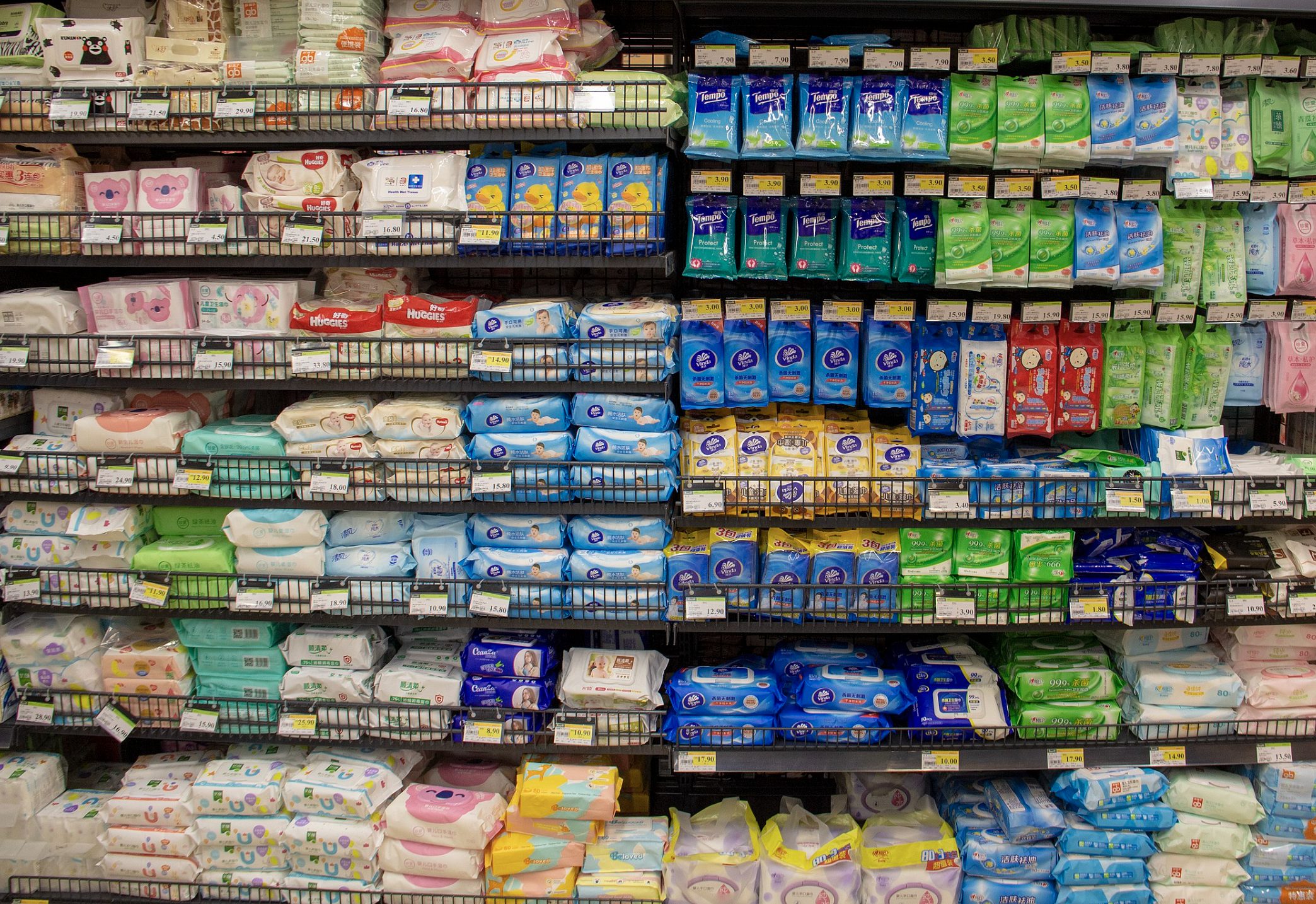UK government raises concerns over 'flushable' wet wipes labelling

Sustainability
In an effort to combat harmful plastics and protect its waterways, the UK government is taking decisive action by urging producers of wet wipes to address concerns related to the labelling of their products.
Environment Secretary Thérèse Coffey has recently written to wet wipes producers, expressing her apprehension about the alarming number of wet wipes being flushed down UK toilets each year, estimated to be between 2.1 and 2.9 billion. She has called on producers to reconsider the use of the term 'flushable' on packaging, with the aim of preventing sewer blockages and reducing water pollution.
These wet wipes are responsible for a staggering 94 percent of sewer blockages, leading to property damage and the introduction of sewage-related litter into the environment. It is estimated that water companies spend £100 million annually to tackle this issue. Secretary Coffey has conveyed her concern that labels indicating 'flushable' or 'fine to flush' may mislead consumers into disposing of the wipes in toilets, instead of responsibly discarding them in waste bins.
Wet wipes producers have been requested to outline their plans for addressing these concerns.

Recently, Water Minister Rebecca Pow participated in a summit in Paris, where the UK, along with 52 other members of the High Ambition Coalition (HAC) to End Plastic Pollution, signed a comprehensive Joint Ministerial Statement. The statement calls for the inclusion of various mandatory provisions in the global plastic pollution treaty, which is currently being negotiated.
These actions align with the commitments outlined in the government's Plan for Water, which includes writing to producers and advertising authorities regarding the use of the term 'flushable' on wet wipes packaging.
Additionally, the Plan for Water commits to a public consultation on the proposal to ban wet wipes containing plastic. This initiative responds to public demands to address the detrimental impact of plastic in our waterways and builds upon recent actions taken by major retailers such as Boots and Tesco. The government aims to collaborate with the industry to ensure that plastic-free alternatives are readily available to the public.
Water Minister, Rebecca Pow said: It is vital that producers are more transparent with their guidance on flushability, as ultimately wet wipes that are dumped down the toilet can cause damage to our environment and water quality. This is alongside the wider action we’re taking on water quality, including tougher enforcement for water companies, more investment and tighter regulation to stop pollution happening in the first place.
The government remains dedicated to addressing the issue of plastic waste and urges producers to take immediate action in ensuring responsible labelling practices for wet wipes. By working together, we can make a substantial impact in safeguarding our environment and preserving the health of our waterways.
Related News
-
Sustainability
UK: £3.2 million allocated to foster innovations in plastics reduction
-
Business
Two billion non-essential plastic pieces successfully removed by Tesco
-
Sustainability
Tesco ditches 'Use By' dates on yogurt packaging to cut food waste
-
Sustainability
Canadians weigh in on plastic packaging labelling and tracking
-
Sustainability
Recycle Check enhances recycling knowledge for U.S. consumers




